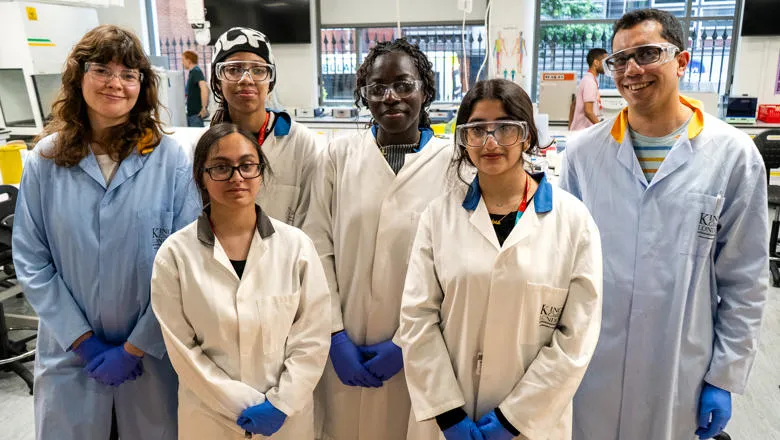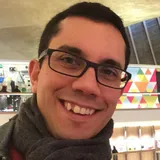Budding young scientists from schools around London have tried out their skills in cancer research at a selection of laboratories around King's this week.

Nearly 50 A level students learned how to carry out techniques being used in real-life cancer research projects as part of the work experience programme. They have learned about everything from sequencing genomes and understanding how gene mutations lead to cancer, to using cutting edge CAR-T cell therapy to enhance the immune system's ability to recognise and destroy cancer.
Scientists Dr Linda Barber, Reader in Cancer Immunology and Education, and Dr Jeremy Carlton, Reader in Molecular and Cellular Biology, led this on the King's side. They taught pupils about how CAR-T cells are made and advanced techniques such as western blotting, which is performed to understand whether chemotherapeutics are killing cancer cells.
The Science Training for Aspiring Research Scientists (STARS) programme aims to support young people from schools with historically low university attendance. Participants were given hands-on experience in a working laboratory, as well as the opportunity to meet researchers and find out about their career path. The students also had a session with a university admissions team to provide advice on the application process, and budgeting for life at university.
STARS made such a difference to me. The careers advice and hands-on lab experience was invaluable, and I got a real insight into how science underpins the study of medicine. This encouraged me to read Biomedical Sciences as my first degree.
Muhammad Umer, a 2016 STARS participant
He continued: "I'm now in my final year of medical school, and almost a qualified doctor. I hope this year's STARS cohort will also grasp this wonderful opportunity to make their career aspirations a reality."
The programme was organised by Cancer Research UK's City of London (CoL) Centre. The CoL Centre is a world class hub for cancer biotherapeutics that brings together researchers from four of the central London Cancer Research UK centres: King's University College London (UCL), Queen Mary University of London (QMUL) and The Francis Crick Institute.
The CoL Centre has provided £20,000 funding to expand the STARS programme to include laboratories across UCL and King's for the very first time. STARS began at the Barts Cancer Institute at QMUL in 2013, and recruits pupils from schools including Brampton Manor Academy, The Elmgreen School and the Hammersmith Academy.
Pursuing a career in science is exhilarating, challenging, and enables you to make a real difference to the world. But in some schools, really bright, promising young people feel that science isn't for them. I developed the STARS programme to inspire future researchers - whatever their background - so that together, we can improve health for all."
Professor John Marshall, a senior researcher at Barts Cancer Institute and the driving force behind STARS
As well as having the opportunity to meet senior researchers like Professor Marshall, students participating in STARS are mentored by PhD students. This gives participants the opportunity to find out more about potential career paths, and to meet scientists from diverse backgrounds. For mentors, it's a chance to improve their teaching and science communication skills, and to see their work from a new perspective.
The majority of participants are selected through the Mayor's Fund for London, a charity that champions opportunities for young Londoners facing the biggest barriers.







